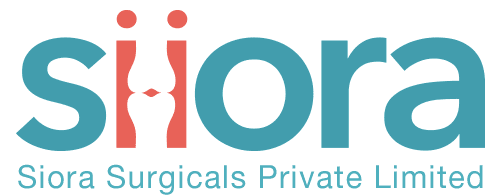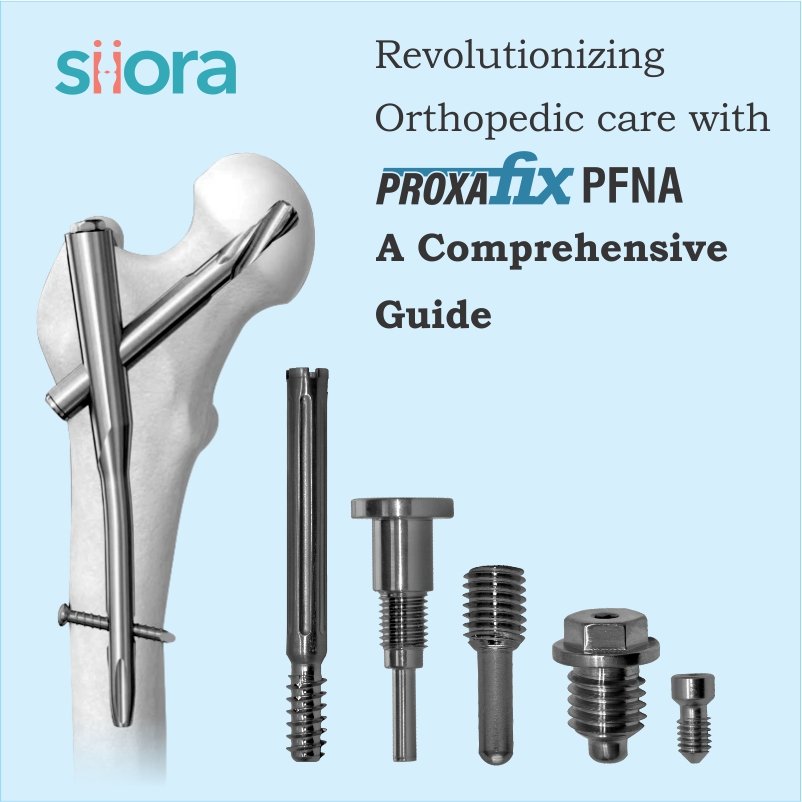With continuing medical advancements, customization has become a cornerstone for improving patient outcomes and quality of life. One area where this is particularly evident is in the field of orthopedics. Gone are the days of one-size-fits-all solutions; today, the trend is toward personalized orthopedic implants that cater to the unique needs of each individual. This blog will explore the significance of customization in the orthopedic implants industry, delving into the reasons behind this paradigm shift and the innovative methods employed to achieve it.
Why Customize Orthopedic Implants?
Customization of orthopedic devices has not only improved the post-surgical results but has also played a significant role in boosting the trust of individuals requiring orthopedic surgeries. Here are some of the important reasons why there is a need to customize orthopedic implants:
Patient-Centric Approach
The human body is a complex and intricately designed machine, and no two individuals are exactly alike. Generic implants may not address an individual’s body’s specific anatomical variations or unique biomechanical demands. Customization allows for a tailored solution that fits the patient like a glove, enhancing comfort, functionality, and overall satisfaction.
Optimizing Biomechanics
Each person’s body moves and functions in a slightly different way. Standard implants may not always align perfectly with an individual’s biomechanics, potentially causing discomfort, reduced range of motion, or even implant failure. By customizing orthopedic implants, surgeons can optimize the fit and alignment, ensuring that the implant harmonizes seamlessly with the patient’s natural movements. This improves the immediate post-surgery experience and contributes to the implant’s longevity and durability.
Addressing Anatomical Variations
Human anatomy is remarkably diverse, and the conventional approach of mass-producing implants fails to accommodate these natural variations. Customization allows surgeons to account for specific anatomical features, such as variations in bone size, shape, and alignment. This tailored approach minimizes the need for adjustments during orthopedic surgery. This also reduces the risk of complications, ultimately leading to more successful outcomes.
Personalized Rehabilitation
Post-surgery rehabilitation is a critical phase in the recovery process. Customized implants take into account the patient’s lifestyle, activity level, and rehabilitation needs. This personalization ensures that the implant supports the patient’s functional requirements, promoting a smoother recovery and a faster return to normal activities. A personalized rehabilitation plan aligned with the specifics of the implant contributes to a more efficient recovery journey.

How Orthopedic Implants Are Customized?
The field of medicine is ever-advancing. With the rise of technology, this sector has also seen a leap when it comes to the use of technology for better diagnosis and patient care. Customization of orthopedic implants is also done with the use of present-day technologies. Here is the process and technologies for the customization of implants to meet an individual’s needs:
Advanced Imaging Technology
The journey toward customization begins with advanced imaging technology. High-resolution imaging techniques, such as CT scans and MRIs, provide detailed insights into the patient’s anatomy. These images serve as the foundation for creating three-dimensional models of the affected area. It also llowing surgeons to visualize the unique characteristics of the patient’s anatomy.
Computer-Aided Design (CAD)
Once the imaging data is obtained, computer-aided design (CAD) software comes into play. Surgeons and engineers use CAD to transform the 3D models into precise digital representations of the customized implant. This process allows for meticulous planning and adjustment of the implant’s dimensions, ensuring a perfect fit for the patient.
3D Printing Technology
The advent of 3D printing has revolutionized the production of customized orthopedic implants. Utilizing materials like titanium or cobalt-chromium alloys, 3D printing allows for the creation of intricate implant designs with a high level of precision. This additive manufacturing method enables the production of implants that match the exact specifications derived from the CAD models.
Biocompatible Materials
The choice of materials is crucial in the customization process. Biocompatible materials, such as titanium and its alloys, are favored for their compatibility with the human body. These materials not only provide the necessary strength and durability but also reduce the risk of adverse reactions or rejection by the patient’s body.
Surgical Navigation Technology
During surgery, precision is paramount. Surgical navigation technology, often integrated with the use of robotics, assists surgeons in precisely placing the customized implants. This technology enhances the accuracy of implant placement, reduces the margin for error, and contributes to a more efficient surgical procedure.
Conclusion
In the ever-evolving landscape of medical science, the move towards customization of orthopedic implants stands as a testament to the commitment to patient well-being and improved healthcare outcomes. The shift from generic solutions to personalized implants reflects a deeper understanding of the intricacies of the human body and a dedication to providing tailored solutions for each patient’s unique needs.
As we look to the future, the synergy between advanced imaging technologies, computer-aided design, 3D printing, and surgical navigation will continue to push the boundaries of what is possible in orthopedic surgery. The era of personalized medicine is upon us, and trauma implants are at the forefront of this transformative journey, offering hope for enhanced mobility, reduced recovery times, and improved quality of life for people around the world.
About Siora Surgicals Pvt. Ltd.
Siora Surgicals is a leading manufacturer of a CE-certified range of orthopedic implants in India. The company has a strong global presence with around 130 national and international clients. Having served orthopedic distributors and surgeons in over 50 countries, Siora always keeps increasing these numbers by finding orthopedic distributors in Dubai and other parts of the world. An in-house manufacturing facility gives Siora the strength to meet the bulk requirements of clients and ensure smooth supply chain management. All the implants pass through a series of stringent quality checks to conform to international standards before being approved.
The company is known to maintain a huge inventory of finished and semi-finished orthopedic implants. Thus, it can fulfill the varied requirements of different clients. Above all, Siora Surgicals has also marked its name among the trustworthy OEM/contract manufacturing service providers across the globe.








